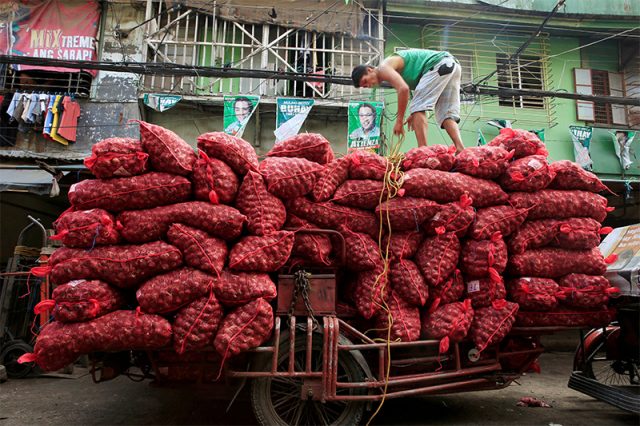
MANILA— Philippine onion importers have applied for permits for just a quarter of the approved emergency purchase of up to 21,060 tonnes, which agriculture officials said may not bring down exorbitant prices that have added to soaring inflation.
The cost of onions, widely used in many local dishes, more than quadrupled in four months to hit as high as 700 pesos ($12.83) per kilogram in Manila markets in December, among the highest in the world and contributing to double-digit food inflation.
Food prices helped push the consumer price index last month up 8.1% from a year earlier, a 14-year high, with the central bank warning of continued pressure and signaling further interest rate hikes in the first half of 2023.
The Bureau of Plant Industry has cleared the importation of about 25% of the approved volume, which must be shipped in not later than Jan. 27, agriculture officials told a Senate hearing on Monday.
“Even if we import the entire approved volume, even that will not have a substantial impact on prices,” said Mercedita Sombilla, agriculture undersecretary for planning.
The Philippines had been hit by onion production shortfalls in recent months, as farmers were discouraged to boost planting due to competition with imported supply, according to farmers’ groups.
Government data showed prices have eased over the past two weeks, with the most widely-consumed red onion selling at 350-550 pesos per kg as of Friday, still much higher than the 2022 low of 70 pesos in April.
President Ferdinand Marcos Jr, speaking to reporters on Sunday en route to Davos for the World Economic Forum, said the country was forced to import onions amid a wide gap between supply and demand.
He blamed the country’s long-running reliance on food importation, which discouraged local farmers, for the chronic domestic shortfalls involving many commodities, including the staple rice.
—Reporting by Enrico Dela Cruz; Editing by Martin Petty









